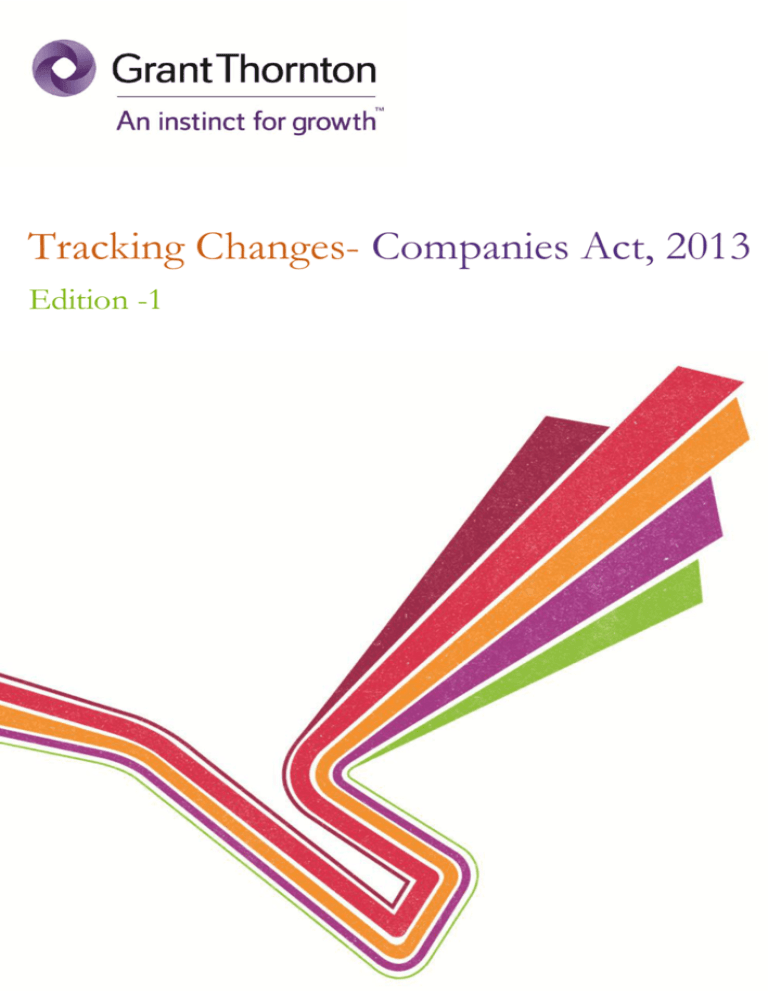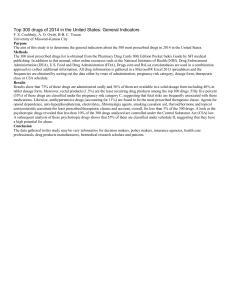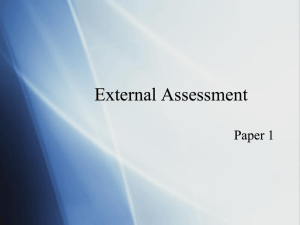
Tracking Changes- Companies Act, 2013
Edition -1
The Companies Act 2013: An overview
The Companies Act, 2013 (“2013 Act”) was enacted on 29 August 2013 on accord of Hon’ble President’s
assent and has the potential to be a historic milestone, as it aims to improve corporate governance, simplify
regulations, enhance the interests of minority investors and for the first time legislates the role of whistleblowers. The 2013 Act replaces the nearly 60-year old Companies Act, 1956 (“1956 Act”). The 2013 Act
provides an opportunity to make our corporate regulations more contemporary, and also potentially to
make our corporate regulatory framework a model to emulate for other economics with similar
characteristics. The 2013 Act is more a rule-based legislation containing only 470 sections, which means
that the substantial part of the legislation will be in the form of rules.
The 2013 Act was set to be implemented in a phased manner. Moving in this direction, on
12 September 2013, the Ministry of Corporate Affairs (MCA) notified 98 sections with immediate effect.
On 27 February 2014, MCA notified rules relating corporate social responsibility activities to become
effective from 01 April 2014. On 26 March 2014, MCA notified another 183 sections and schedules to the
2013 Act to become effective from 01 April 2014. As a result, many of the key requirements of the new
2013 Act including those relating to incorporation, management, board functioning, accounts and audit
become effective from 01 April 2014. The MCA is yet to notify certain parts of the new Act relating to
National Financial Reporting Authority, Investor & Education Protection Fund, compromise and
arrangement, oppression & mismanagement, winding up, sick companies, special courts and National
Company Law Tribunal which are also expected to be notified soon in the due course.
This edition primarily highlights some of key sections out of the 183 sections that have been recently
notified in addition to schedules and which may be expected to have significant impact to the functioning
of the companies.
"In a yet another big step forward, the MCA on 26 March notified 183 sections more of the
Companies Act 2013 in addition to six schedules to the Companies Act 2013. This follows the
notification of 98 sections in September 2013. This is an exciting development that makes the
reformative new company law indeed a reality however considering the immediate effective date
(01 April 2014) timelines to ensure compliance is expected to be of concern for the corporates.
What will now be interesting to see is how soon are the related rules notified and become effective
and whether they provide any additional transition time."
Yogesh Sharma
Partner
Grant Thornton India LLP
New sections- A summary
Chapter I- Preliminary/ Definitions
Section 2(41)-Financial Year
The 1956 Act provides companies to elect financial year. The 2013 Act eliminates the existing flexibility in
having a financial year different than 31 March. The 2013 Act provides that the financial year for all
companies should end on 31 March, with certain exceptions approved by the National Company Law
Tribunal. Companies should align the financial year to 31 March within two years from 01 April 2014.
Section 2(85)-Small Company
Small Company means a company (other than a public company) whose paid –up capital does not exceed
Rs 5 million (or such other higher amount as may be prescribed, not exceeding Rs 50 million) or whose
turnover does not exceed Rs 20 million ( or such other higher amount as may be prescribed, not exceeding
Rs 200 million) as per last profit and loss account. Small Company cannot be a holding or a subsidiary
company.
The 2013 Act provides exemptions to Small Companies primarily from certain requirements relating to
board meeting, presentation of cash flow statement and certain merger process.
Chapter IV-Share Capital and Debenture
Section 52-Application of premium received on shares
Section 52 deals with utilisation of securities premium. While the 1956 Act does not distinguish the
manner of utilisation of securities premium, section 52 restricts utilisation of securities premium for
certain class of companies (as may be prescribed) and companies that comply with accounting standards
prescribed under section 133 of the 2013 Act.
55(except for sub-section 5)-Issue and redemption of Preference Shares
Notified part of section 55 deals with issue and redemption of preference shares. It does not change the
1956 Act requirements except that company may issue preference shares with a redemption period
exceeding 20 years for specified infrastructure projects. Infrastructure projects are notified vide Schedule
VI to the 2013 Act.
Chapter V- Acceptance of Deposit by Companies
Section 73, 74(1) and 76- Provisions related to acceptance of deposits
The 2013 Act provides more stringent requirements to enable the company to accept deposits from
public. Section 74 (1) requires companies to repay the deposits (including interest thereon) accepted under
the 1956 Act within one year from the commencement of this section.
Chapter VII-Management and Administration
Section 108- Voting through electronic means
Section 108 permits shareholder voting by electronic means for prescribed class of companies.
New sections- A summary
Chapter IX-Account of Companies
Section 129- Financial Statement
The 2013 Act mandates preparation of consolidated financial statements for all companies which have
one or more subsidiaries in addition to the standalone financial statements.
Section 134- Financial statement, Board’s report, etc.
Section 134 seeks to make the board’s report more informative with extensive additional disclosures like a
statement on declaration of independence by the independent directors, related party transactions, policy
on director’s appointment and remuneration, ratio of remuneration to each director to the median
employee’s remuneration, policy developed and implemented by the company on corporate social
responsibility.
Further, Director’s responsibility statement should include the following additional matters as compared to
the 1956 Act:
(i) In case of a listed company, the directors had laid down internal financial controls to be followed by the
company and they are adequate and operating effectively; and
(ii) The directors have devised proper systems to ensure compliance with all applicable laws and such
systems are adequate and operating effectively.
Section 138- Internal audit
Section 138 mandates internal audit for prescribed class of companies (*rules have prescribed the applicability
of this section to listed company; unlisted public company with a paid up capital of Rs 500 million or more, or turnover of
Rs 2000 million or more, or outstanding bank/financial institution borrowings of Rs 1000 million or more, or outstanding
deposits of Rs 250 million or more at any time during the last financial year; and every unlisted public company with a
turnover at any time during the last financial year ; and private company with a turnover of Rs 2000 million or more, or
outstanding bank/financial institution borrowings of Rs 1000 million or more, or outstanding deposits of Rs 250 million
or more at any time during the last financial year)
Chapter X-Audit and Auditors
Section 139- Appointment of auditors
Auditors’ appointment will be for a five year term (subject to ratification by members at every annual
general meeting). In case of listed companies and such class of companies as prescribed (draft rules have
prescribed the applicability of this section to all companies except Small Company and One Person Company) , the term
of appointment of an individual auditor/ an audit firm is restricted to a period of five years/ten years. An
auditor/ audit firm should mandatorily rotate at the expiry of the term and can get appointed only after a
cooling off period of five years. Act provides for a transition period of three years, from 01 April 2014, to
comply with the mandatory rotation requirement.
New sections- A summary
Section 141-Eligibility, qualifications and disqualifications of auditors
The 2013 Act provides that a firm wherein a majority of the partners practising in India are
qualified for appointment may be appointed to be an auditor of a company. Where a firm,
including a Limited Liability Partnership, is appointed as an auditor of the company, only partners, who
are chartered accountants are permitted to act and sign on behalf of the Firm. Further, the 2013 Act
restricts the number of audits to 20 companies for an individual/partner and provides additional stringent
disqualifications like business relationship and non-audit service disqualification.
Section 144- Auditor not to render certain services
Section 144 prohibits auditors of a company to render non-audit services to an audit client
(or its holding company or its subsidiary company). Prohibited non-audit services include
accounting and book keeping services, internal audit, design and implementation of any financial
information system; actuarial services; investment advisory services; investment banking services;
rendering of outsourced financial services and management services. Other restricted service may be
further prescribed. There is a transition period of one year from 01 April 2014 to comply with this
requirement.
Section 148-Central Government to specify audit of items of cost in respect of certain companies
Section 148 mandates cost audit by Cost Accountant in practice for prescribed class of companies.
Chapter XI-Appointment and Qualification of Directors
Section 149 and 164- Company to have Board of Directors and Disqualifications for appointment
of director
The 2013 Act requires that the company shall have a maximum of fifteen directors and appointing more
than fifteen directors will require special resolution by shareholders. Further, it requires appointment of at
least one woman director on the board for prescribed class of companies.
It also requires that company should have at least one resident director i.e. who has stayed in India for a
total period of not less than hundred and eighty two days in the previous calendar year.
The 2013 Act defines the term "Independent Director" and in case of listed companies, one third of the
board of directors should be independent directors. There is a transition period of one year form 01 April
2014 to comply with this requirement. The 2013 Act also provides additional qualifications/ restrictions
for independent directors as compared to the 1956 Act.
Section 150- Manner of selection of independent directors and maintenance of databank of
independent directors
Section 150 enables selection of independent directors out of data bank maintained by a prescribed body.
Section 165- Number of directorships
Section 165 provides that a person cannot have directorships (including alternate directorships) in more
than twenty companies, including ten public companies. It further provides for one year transition from
01 April 2014 to comply with this requirement.
New sections- A summary
Chapter XII-Meetings of Board and its Powers
Section 177- Audit Committee
Section 177 enhances the role and responsibilities of the audit committee which includes the
recommendation for appointment, remuneration and terms of appointment of auditors of the company;
review and monitor the auditor’s independence and performance, and effectiveness of audit process,
examination of the financial statement and the auditors’ report thereon; approval or any subsequent
modification of transactions of the company with related parties; scrutiny of inter-corporate loans and
investments; valuation of undertakings or assets of the company, wherever necessary; evaluation of
internal financial controls and risk management systems; and monitoring the end use of funds raised
through public offers and related matters.
Further section 177 requires every listed company or such prescribed class of companies (*rules have
prescribed the applicability of this section to listed companies and every other company which accepts deposits from the public
and companies which has bank/public financial institution borrowings in excess of Rs 500 million) to establish vigil
mechanism to enable their directors and employees to report genuine concerns. The vigil mechanism will
provide for adequate safeguards against victimization of persons who use such mechanism and make
provision for direct access to the Chairperson of the audit committee in appropriate exceptional cases.
Section 188- Related party transactions
Section 188 requires that related party transactions exceeding prescribed amount (*rules have prescribed the
threshold either as an absolute amount or amount determined as a percentage of turnover /net worth per last audited
financial statements, threshold varies depending on the nature of related party transactions) or all such transactions
entered by prescribed class of companies (*rules have prescribed the applicability of requirement to company having
a paid up capital of Rs 100 million or more) which are not in the ordinary course of business or not at arm’s
length basis should be approved by the special resolution. Related party shareholders are not permitted to
exercise their voting rights in such special resolution.
It also requires every related party transaction should be referred to in the Board’s report along with the
justification for entering into such transactions.
Chapter XIII- Appointment and Remuneration of Managerial Personnel
Section 203- Appointment of key managerial personnel
Section 203 mandates appointment of whole time key management personnel (Chief Executive Officer/ a
whole-time director, Chief Financial Officer and Company Secretary) for prescribed class of companies
(draft rules have prescribed the applicability of this section to public companies and every other company with a paid up
share capital of Rs 50 million or more).
Section 204- Secretarial audit for bigger companies
Section 204 mandates Secretarial Audit by a Company Secretary in practice for listed companies and other
prescribed classes of companies (draft rules have prescribed the applicability of this section to every public company
with a paid up share capital of Rs 1,000 million or more).
New sections- A summary
Schedules to the Act 2013
Schedule II- useful lives to compute depreciation
Schedule II prescribes useful life and residual value of an asset. Certain class of companies (as may be
prescribed) and companies that comply with accounting standards prescribed under section 133 of the
2013 Act should disclose the justification if the useful life and residual value of an asset are different from
those prescribed under Schedule II.. Impact of change in useful life and residual life should be recognised
over the revised remaining useful of the asset.
Schedule III – General instructions for preparation of balance sheet and statement of profit and
loss of a company
Schedule III (similar to existing revised schedule VI of the 1956 Act) prescribes the format for presentation of
consolidated financial statements and requires minority interest to be presented separately within equity.
*While MCA has just published the rules, these rules are to be published in the Gazette of India. More
detailed analysis will be included for recently published rules in the next edition of Tracking Changes.
About Grant Thornton India LLP
Grant Thornton India LLP is a member firm within Grant Thornton International Ltd. It is a
leading professional services firm providing assurance, tax and advisory services to dynamic Indian
businesses.
With a partner led approach and sound technical expertise the Firm has extensive experience across many industries
and businesses of various sizes. Moreover, with our robust compliance solutions and ability to navigate complexities
we help dynamic organisations unlock their potential for growth through global expansion, global capital or global
acquisitions.
Today, the Firm is recognised as one of the largest accountancy and advisory firms in India with nearly 1,500
professional staff in New Delhi, Bengaluru, Chandigarh, Chennai, Gurgaon, Hyderabad, Kolkata, Mumbai, Noida
and Pune, and affiliate arrangements in most of the major towns and cities across the country.
As a member firm within Grant Thornton International Ltd, the Firm has access to member and correspondent
firms in over 120 countries, offering our clients specialist knowledge supported by international expertise and
methodologies
NEW DELHI
National Office
Outer Circle
L 41 Connaught Circus
New Delhi 110 001
T +91 11 4278 7070
GURGAON
21st floor, DLF Square
Jacaranda Marg
DLF Phase II
Gurgaon 122 002
T +91 124 462 8000
CHANDIGARH
SCO 17
2nd floor
Sector 17 E
Chandigarh 160 017
T +91 172 4338 000
CHENNAI
Arihant Nitco Park, 6th floor
No.90, Dr. Radhakrishnan Salai
Mylapore
Chennai 600 004
T +91 44 4294 0000
BENGALURU
“Wings”, 1st floor
16/1 Cambridge Road
Ulsoor
Bengaluru 560 008
T +91 80 4243 0700
KOLKATA
10C Hungerford Street
5th floor
Kolkata 700 017
T +91 33 4050 8000
MUMBAI
16th floor, Tower II
Indiabulls Finance Centre
SB Marg, Elphinstone (W)
Mumbai 400 013
T +91 22 6626 2600
PUNE
401 Century Arcade
Narangi Baug Road
Off Boat Club Road
Pune 411 001
T +91 20 4105 7000
HYDERABAD
7th floor, Block III
White House
Kundan Bagh, Begumpet
Hyderabad 500 016
T +91 40 6630 8200
NOIDA
Plot No. 19A, 7th Floor,
Sector 16-A,
Noida 201301.
T +91 120 7109001
Our offices
For more information, visit www.grantthornton.in/companiesact2013 or write to us at CompaniesAct@in.gt.com
© Grant Thornton India LLP. All rights reserved.










